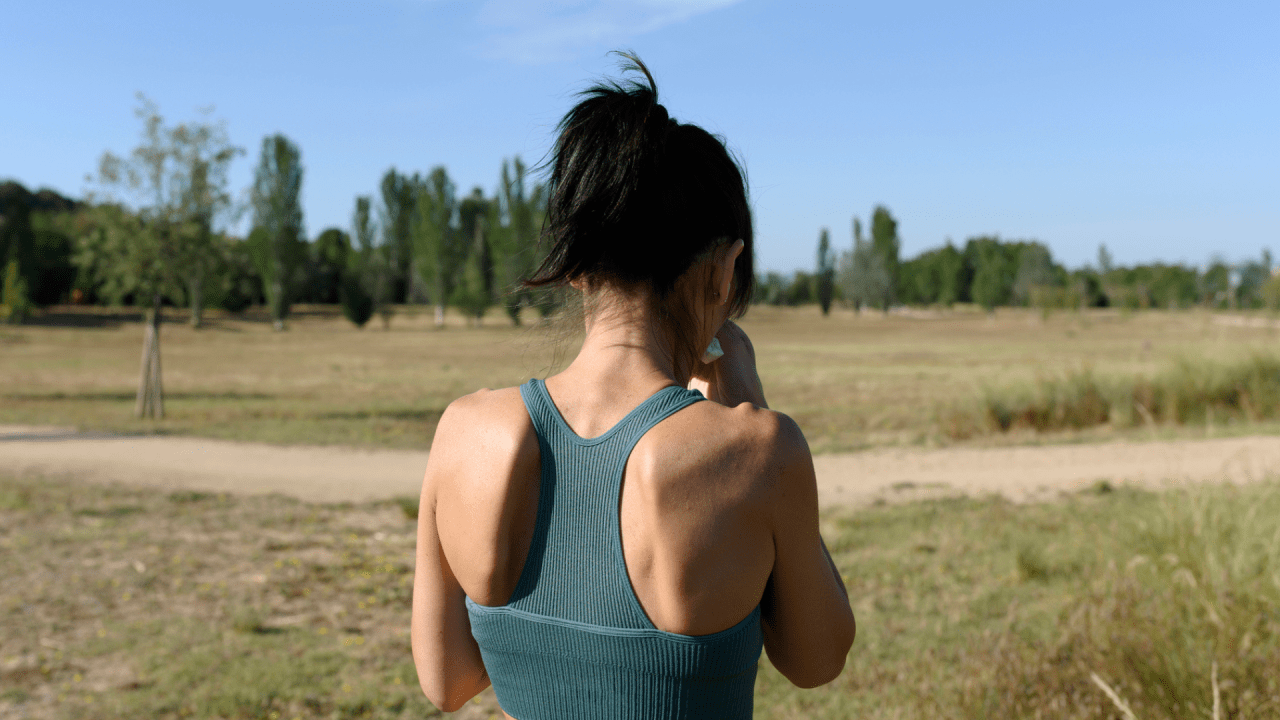
If you’re prone to getting a runny nose during or after a workout, we’ve got some good – and some bad – news about why exactly this happens.
You’re out for a walk or a jog when your nose starts dripping like a tap. It’s irritating, distracting, and makes for an uncomfortable run to the finish line. It might even continue hours after you’ve wrapped your workout.
Beyond being annoying, it is actually a diagnosed condition called rhinitis, which causes the nose to drop when we exercise.
„Nonallergic rhinitis involves sneezing or a stuffy, drippy nose. It can be a long-term problem,“ the Mayo Clinic says.
You might even start sniffing and coughing while tucking into a spicy dish. That’s rhinitis too.
Like what you see? Sign up to our bodyandsoul.com.au newsletter for more stories like this.
Julie Moore, clinical respiratory physiotherapist at the Institute of Sport, Exercise and Health in the UK tells Stylist there’s more to rhinitis than just your nose dripping mid-run or walk.
It’s an inflammation of the nasal passages, and Moore says it’s important to strengthen your ability to nose breathe if you want symptoms to improve.
How do you do this? Cease mouth breathing while you exercise, she says. “Not treating rhinitis will make you avoid breathing through your nose, which is detrimental to your breathing pattern,” she says.
“Breathing through your mouth is OK for short periods of time, but the nose has the essential job of filtering air and protecting the lungs and body.” Moore says, “The more you use your nose to breathe, the stronger and clearer it will get. Avoiding breathing through your nose is not the answer.”
Though it is tempting when you’re fending off the dreaded drizzle mid-workout.
Another benefit of breathing through your nose when you exercise is the safeguarding of your throat and lungs.
“The nose also warms the air, and because the lungs are mostly water, they can dry out very quickly due to chronic mouth breathing. This can lead to irritability and sensitivity in the throat and lungs, as well as causing a cough and tight sensation in the upper chest,” Moore explains.
The bad news is, breathing through your nose 24/7 won’t stop rhinitis in its tracks entirely if it is an allergic variant caused by pollution, dust, fumes, weather conditions, swimming, or medications.
“Unfortunately, there is no way to prevent this common condition, which affects up to 74 per cent of athletes,” she says.
And most importantly, see your doctor.
“Those who suffer from allergic rhinitis are advised to take antihistamines to help reduce the effects of the condition. Nasal decongestants are also recommended, but only for short-term use, as they can cause rebound congestion,” Moore concluded.